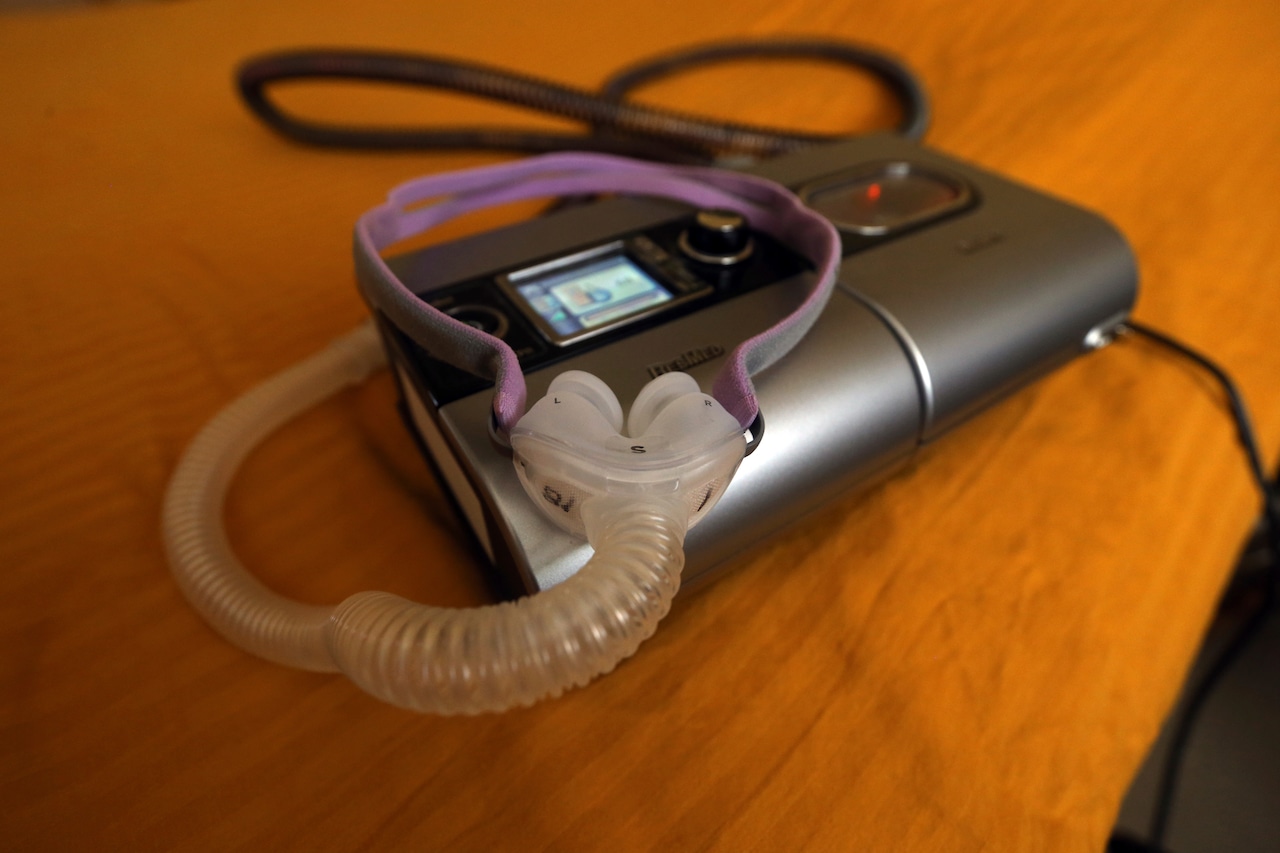A common sleep disorder that leaves millions of Americans exhausted may also be quietly increasing their chances of developing Parkinson’s disease — unless they treat it.
That’s according to a new study led by Oregon Health & Science University and the Portland Veterans Affairs Health Care System, where researchers found that veterans with untreated obstructive sleep apnea were far more likely to later develop Parkinson’s than those without it.
But early use of a continuous positive airway pressure machine, or CPAP, to improve breathing during sleep was linked to noticeably lower rates of the disease, the researchers found.
The study, published Monday in JAMA Neurology, analyzed the electronic health records of more than 11 million U.S. military veterans who received care through the Department of Veterans Affairs between 1999 and 2022.
After adjusting for age, smoking and a wide range of other health conditions, researchers found that sleep apnea was associated with nearly double the risk of developing Parkinson’s.
Researchers say the work is part of a broader effort to shift Parkinson’s research toward identifying and managing risks earlier in life rather than responding only after symptoms appear.
“The best strategy for a neurodegenerative disease is prevention and catching risk factors early, before the damage is done,” said Dr. Greg Scott, a pathologist who researches brain aging at OHSU and the Portland VA, who was the study’s co-author. “Right now we diagnose Parkinson’s after a lot of damage has already happened.”
Parkinson’s disease — a progressive neurological condition that affects movement, balance and cognition — is the second-most common neurodegenerative disorder after Alzheimer’s, according to the Centers for Disease Control and Prevention. It affects about 1 million Americans, and its prevalence is rising as the population ages.
Scott said sleep problems have long been recognized as early warning signs for Parkinson’s. He said a separate condition, REM sleep behavior disorder — in which people physically act out their dreams — is one of the strongest known predictors of future Parkinson’s. That connection made sleep apnea, which is both common and treatable, an appealing condition to study.
Obstructive sleep apnea occurs when throat muscles relax during sleep and block the airway, causing breathing to repeatedly stop and start throughout the night. Over years, that cycle of low oxygen may make brain cells more vulnerable to damage, according to Dr. Lee Neilson, a neurologist at the Portland VA Medical Center and the study’s lead author.
“If you stop breathing several times an hour and your oxygen levels are dropping … you’re essentially stunning those brain cells every time that is happening,” Neilson said. “Night after night, that can accumulate and can lay the groundwork for higher risk of Parkinson’s or possibly other neurodegenerative diseases.”
One of the study’s most notable findings is that veterans who started using a CPAP machine within two years of their sleep apnea diagnosis were far less likely to develop Parkinson’s than those who went without the treatment. A CPAP machine is a bedside breathing device that pushes pressurized air through a mask to keep the airway open.
“That was surprising,” Scott said. “People who still got Parkinson’s but had been on CPAP had fewer fractures, fewer falls, and lower mortality. We tested this rigorously and the result kept happening.”
Still, the researchers said that sleep apnea does not doom someone to Parkinson’s. They said the study shows a strong association but cannot prove cause.
“Having sleep apnea doesn’t guarantee you’re going to get Parkinson’s,” Scott said. “But it does increase your risk — and CPAP seems to reduce it back down.”
Researchers say the next step is to investigate what biological mechanisms might explain the link and whether other sleep apnea treatments — such as implanted nerve stimulators or surgical procedures — offer similar benefits.

